Promoting Executive Function in the Classroom (What Works for Special-Needs Learners)
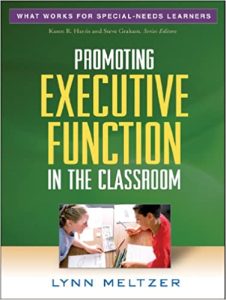 This book helps teachers incorporate executive function processes—such as planning, organizing, prioritizing, and self-checking—into the classroom curriculum. Chapters provide effective strategies for optimizing what K–12 students learn by improving how they learn. Read more ›
This book helps teachers incorporate executive function processes—such as planning, organizing, prioritizing, and self-checking—into the classroom curriculum. Chapters provide effective strategies for optimizing what K–12 students learn by improving how they learn. Read more ›

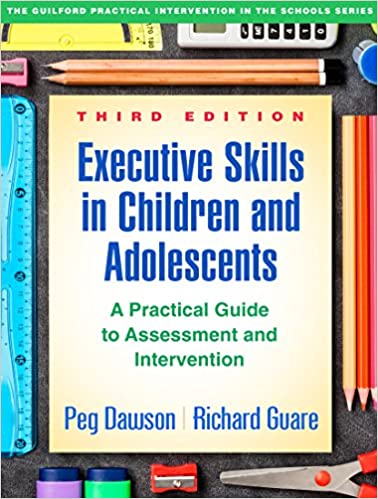
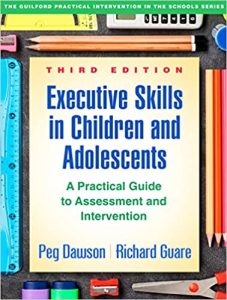 More than 100,000 school practitioners and teachers (K–12) have benefited from the step-by-step guidelines and practical tools in this go-to resource.
More than 100,000 school practitioners and teachers (K–12) have benefited from the step-by-step guidelines and practical tools in this go-to resource. 
 Executive functioning issues don’t go away after high school. They’ll continue to have an impact on your child, whether she’s in college or trade school, on the job or navigating everyday situations. Helping your child learn to manage challenges doesn’t mean you’re letting her off the hook. Your support can help her refine skills as she enters a new phase of life.
Executive functioning issues don’t go away after high school. They’ll continue to have an impact on your child, whether she’s in college or trade school, on the job or navigating everyday situations. Helping your child learn to manage challenges doesn’t mean you’re letting her off the hook. Your support can help her refine skills as she enters a new phase of life. 
 Executive function needs become more complex among high school students as their life roles evolve. Too often, chaos results as they use self-management approaches they have outgrown, like keeping track of their assignments in their heads.
Executive function needs become more complex among high school students as their life roles evolve. Too often, chaos results as they use self-management approaches they have outgrown, like keeping track of their assignments in their heads. 


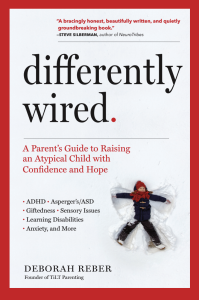 Today millions of kids are stuck in a world that doesn’t respect, support, or embrace who they really are—these are what Deborah Reber is calling the “differently wired” kids, the one in five children with ADHD, dyslexia, Asperger’s, giftedness, anxiety, sensory processing disorder, and other neurodifferences.
Today millions of kids are stuck in a world that doesn’t respect, support, or embrace who they really are—these are what Deborah Reber is calling the “differently wired” kids, the one in five children with ADHD, dyslexia, Asperger’s, giftedness, anxiety, sensory processing disorder, and other neurodifferences. 
 When Kodi Lee appeared on America’s Got Talent, he did so with the help of a cane and his mother. Walking to center stage and speaking took immense effort. After Lee introduced himself, his mother explained that he is blind and autistic. He’s also a talented musician, making him a prominent example of someone who is twice-exceptional, or 2e – terms used to describe people who are intellectually or artistically gifted and have at least one disability.
When Kodi Lee appeared on America’s Got Talent, he did so with the help of a cane and his mother. Walking to center stage and speaking took immense effort. After Lee introduced himself, his mother explained that he is blind and autistic. He’s also a talented musician, making him a prominent example of someone who is twice-exceptional, or 2e – terms used to describe people who are intellectually or artistically gifted and have at least one disability. 
 Schools across the country are overwhelmed with K-12 students struggling with mental health problems, according to school staff, pediatricians and mental health care workers. Not only has this surge made the return to classrooms more challenging to educators, it’s also taxing an already strained health-care system.
Schools across the country are overwhelmed with K-12 students struggling with mental health problems, according to school staff, pediatricians and mental health care workers. Not only has this surge made the return to classrooms more challenging to educators, it’s also taxing an already strained health-care system. 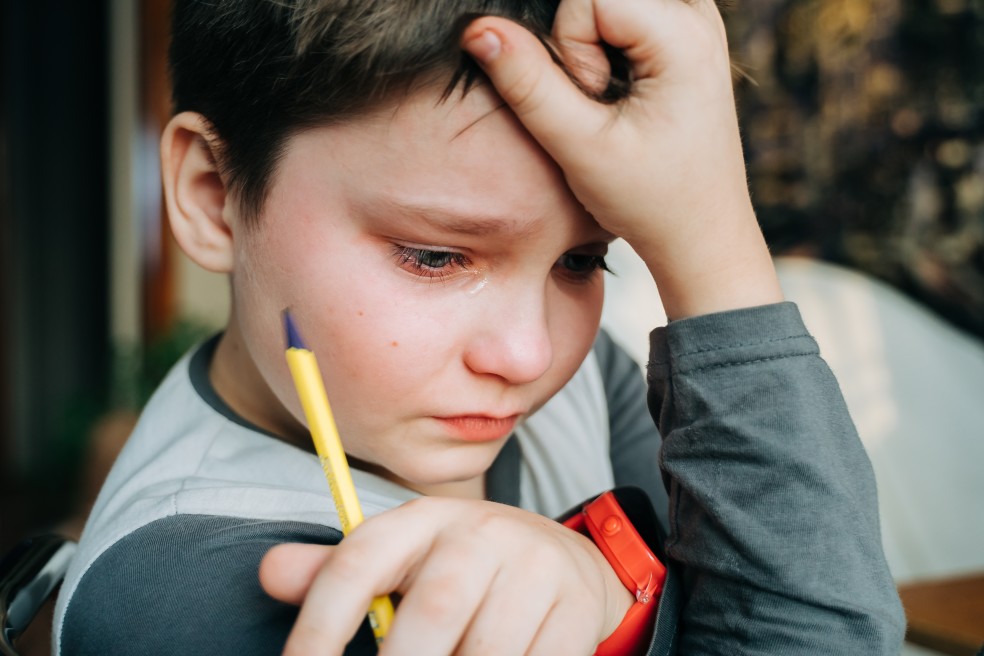
 Children covered under Medicaid are twice as likely to be diagnosed with disorders such as ADHD or autism compared with those who have private insurance, a study published Wednesday by
Children covered under Medicaid are twice as likely to be diagnosed with disorders such as ADHD or autism compared with those who have private insurance, a study published Wednesday by 
 Babies born during the first year of the COVID-19 pandemic in the United States show more evidence of developmental delays at age 6 months compared with those delivered before the virus emerged, a study published by
Babies born during the first year of the COVID-19 pandemic in the United States show more evidence of developmental delays at age 6 months compared with those delivered before the virus emerged, a study published by 

